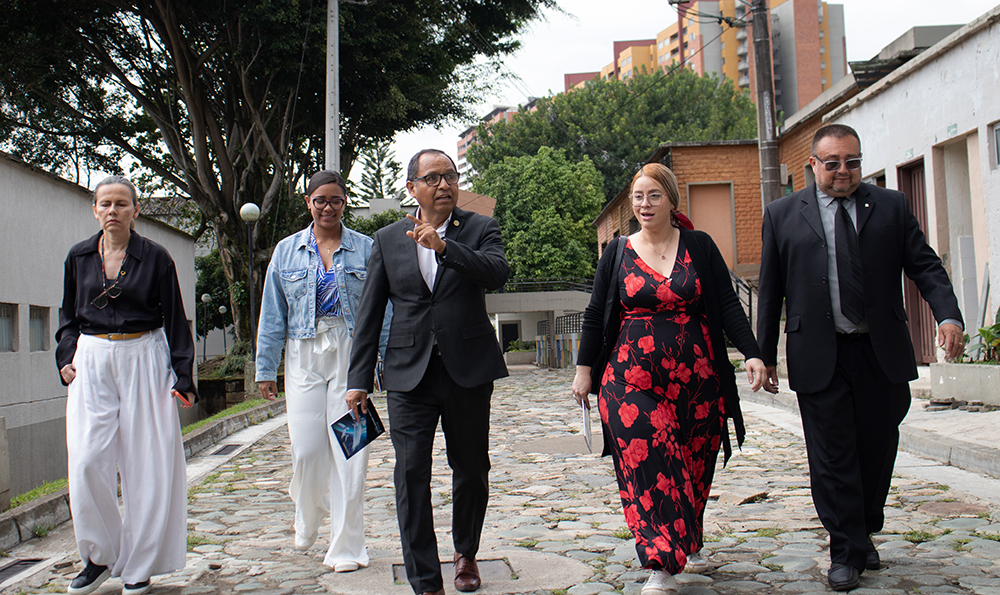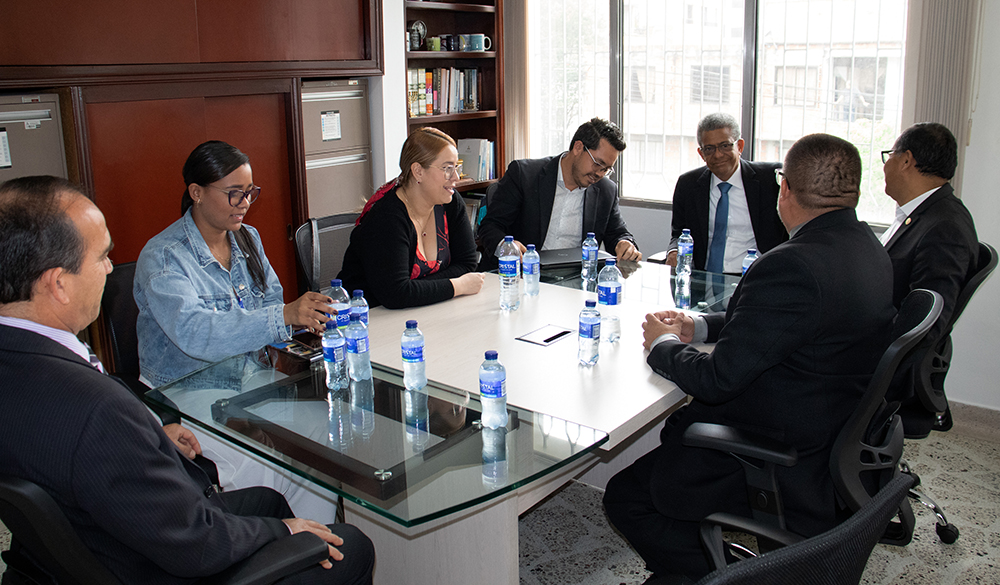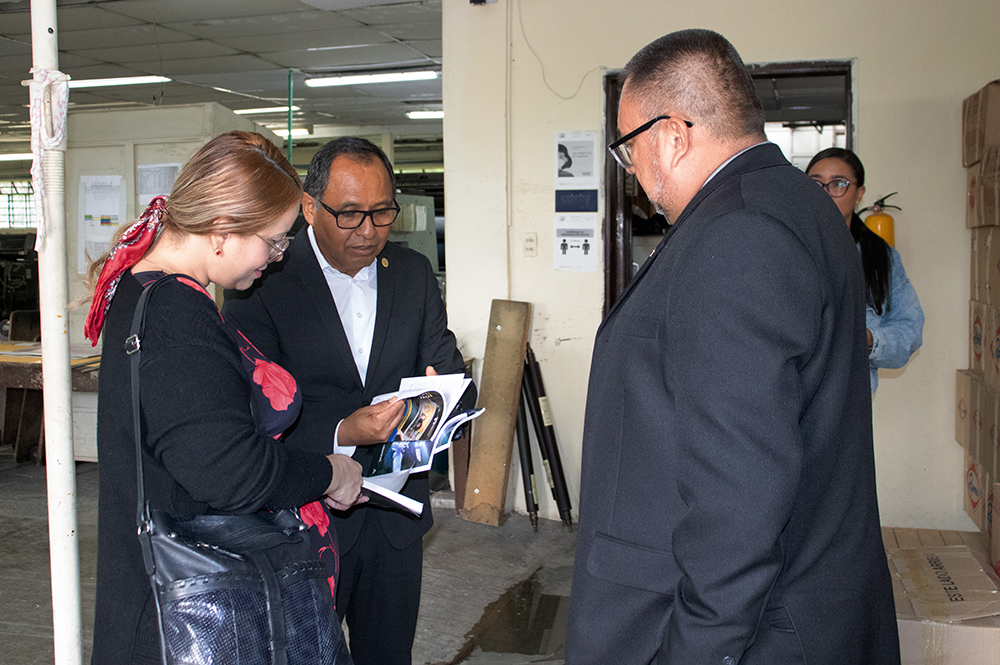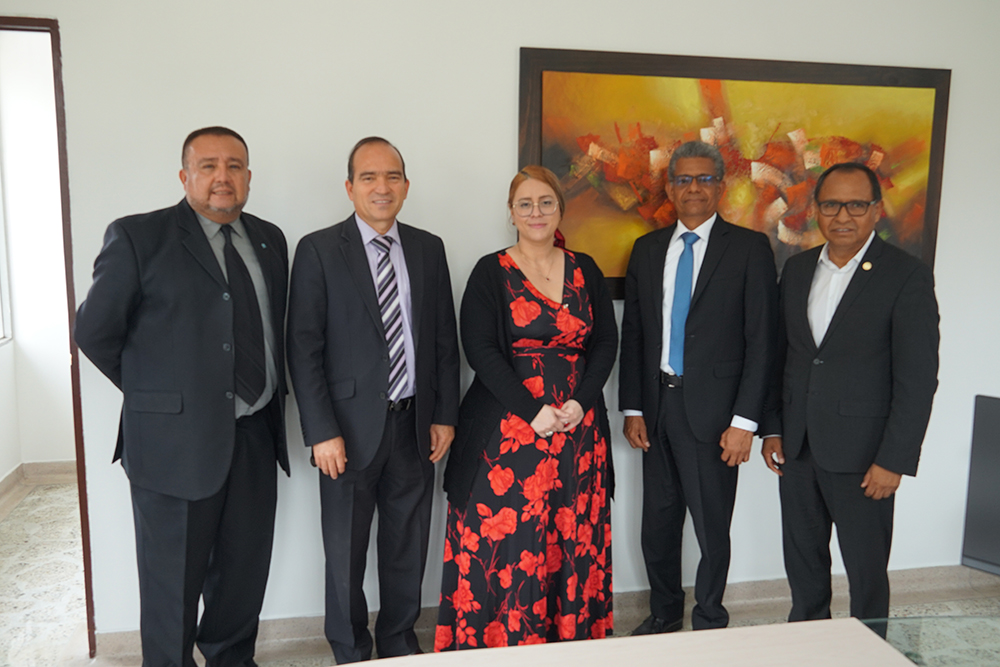In Colombia, Religious Affairs Official Praises the Adventist Church’s Organizational Structure and Work

L-R: Angela Barrios, public relations leader of the Colombia Adventist University, Maria Camila Castro, attorney for the minister of interior for religious affairs, Juan Choque, president of Colombia Adventist University, Amelia Rocio Cote Cortez, director of religious affairs for Colombia and Jair Flores, public affairs and religious liberty director of the North Colombian Union, tour the campus of the Adventist University in Medellin, Colombia, Apr. 12, 2023. [Photo: North Colombia Union]
Director of Religious Affairs of the National Government in Colombia Amelia Rocío Cotes Cortés recently visited church leaders at the Seventh-day Adventist Church in northern Colombia. During the visit she highlighted the fundamental role of churches in the construction of the cultural and social fabric in Colombia.
Cotes discussed the desire of her office to work on research together with the church’s Colombia Adventist University (UNAC), and the interest of the government to know the church’s national and international organization and its dependencies during the Apr. 12, 2023, visit.

Adventist leaders in North Colombian Union sit with Director of Religious Affairs of the National Government in Colombia Amelia Rocío Cotes Cortés to work on social projects to help vulnerable families on Apr. 12, 2023. [Photo: North Colombian Union]
In addition, she highlighted the importance of the churches’ role in sustainable development and comprehensive education, citing the Adventist Church as an example of a “moral reserve of the country,” with dedicated work and an exemplary organizational structure.
“The Adventist Church is a church that is not only renowned, but it is a name earned by responsibility, for their hard work, their way of organizing themselves, the order they have in each of their structures,” added Cotes Cortés. “I have had the best experience with the Adventist Church without being part of it, and for this reason I imagine that those who are within it are very happy to be part of this church, because it is definitely an example for many others.”

Juan Choque (second from left), president of the Colombia Adventist shows some publications to Religious Affairs director of Colombia Amelia Rocío Cotes Cortés on the campus of the Adventist University while Jair Flores, public affairs and religious liberty director of the North Colombia Union look on. [Photo: North Colombian Union]
“It is important to understand that the churches, which constitute around 200,000 places of worship and temples in the country, also have to be governance spaces in terms of power, authority, and communication, since the moral authorities that the churches have are extremely important, especially for this government that wants to work toward peace,” Cotes Cortés emphasized.
Union and university leaders were part of the meeting with Cotes Cortés.
Pastor Edgar Redondo, president of the North Colombia Union, said the relationship with government authorities of any order will always be valuable. “The Word of God tells us in Romans 12:18: ‘ If it is possible, as far as it depends on you, live at peace with everyone’” referenced Redondo.

L-R: Jair Flores, public affairs and religious liberty director, Gonzalez Cardona, executive secretary of North Colombian Union, Amelia Cote Cortés, religious affairs director of Colombia, Edgar Redondo, president of the North Colombian Union and Juan Choque, president of the Colombia Adventist University. [Photo: North Colombian Union]
There are nearly 150,000 Seventh-day Adventists worshipping 1,664 churches and congregations throughout the North Colombian Union. The North Colombian Union is one of two unions operating in Colombia. The South Colombia Union oversees the capital city and southern region of the nation.
To find out more about initiatives and activities led by the North Colombian Union, visit unioncolombiana.org.co